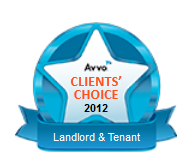Who Should You (as the Mobilehome Community Owner) Deal With Regarding the Decedent’s Estate (Continued)?
However, in the case of a supposed heir or personal representative, your inquiry does not stop upon mere verification of death. Once you have verified or established that the resident is dead, the question for you as the owner, regardless of whether the person has died with or without a will, is does that individual have authority to act or not. This would generally require an official court document, typically known as “Letters of Administration”, depending on the particular county. A possible exception to this, is something frequently referred to as a “Small Estates Affidavit”. This document, which is executed under oath, can be used in certain situations (which are specified in the probate code) and can allow for the release of personal property of the deceased pursuant to the statements in that declaration. There are specific requirements with regard to such affidavits, so it is recommended that you consult with legal counsel if you are presented with such a document.
Furthermore, the HCD allows an heir, after 40-days from the death of the resident, to fill out and file a form called “Certificate for Transfer Without Probate”. With this form, the heir signs an affidavit under oath, and if all requirements are met, the HCD will transfer title of the mobilehome into the individual’s name. Documentation reflecting that the HCD has transferred (or is transferring) title of the mobilehome to the heir/personal representation should also be suffi cient to prove authority to act.
In the absence of documents showing title has been transferred to the heir, joint tenant or personal representative, only the legally appointed representative of the estate with specific court ordered powers has the authority to act on behalf of the deceased. This includes the authority to sell the mobilehome or to enter the home and remove its contents.
Contact Tamara Cross at The Cross Law Firm, APC to discuss additional questions regarding the death of a resident in your mobilehome community.


